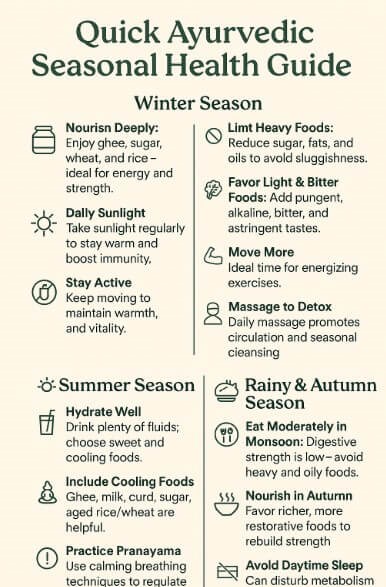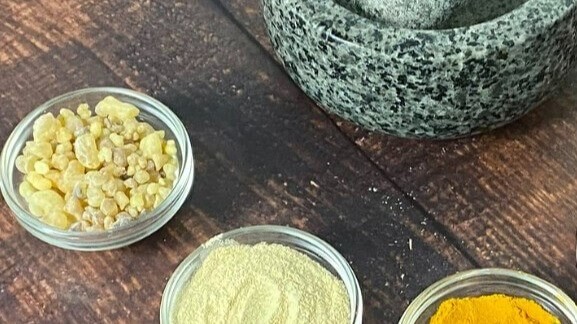Natural living is gaining traction day by day. As many health trends come and go, it is worth asking if going green will stand the test of time. Ayurveda is one traditional lifestyle approach that is gaining renewed attention today. Ayurvedic practices have already gained a lot of respect and attention across the world. It is primarily due to rising lifestyle-related health issues, side effects of synthetic drugs, and a growing interest in preventive care. Ayurveda is a holistic wellness system that focuses on balance and overall well-being rather than just treating the symptoms. WellHealth Ayurvedic health tips aim to share a simple, practical guide rooted in this time-tested system to support overall wellness and healthy living.
Understanding Ayurveda
Ayurveda, a traditional healing system, originated in India over 3,000 years ago, as noted by historical sources like Britannica. What sets Ayurveda apart from other medicine systems is that it emphasizes a personalized approach to health. It does this by focusing on the individual’s unique constitution, known as prakriti, and the balance of the three doshas—Vata, Pitta, and Kapha.
Unlike modern allopathic or homeopathic medicine, Ayurveda promotes overall wellness through a preventive, lifestyle-based, and individual-specific approach. Ayurvedic treatments are often customized based on a person’s unique body type, environment, and lifestyle habits. It is traditionally believed in Ayurveda that treatments like Panchakarma may help cleanse the body and maintain balance before imbalances manifest as illness.
Balancing Mind, Body, and Spirit
Ayurveda does not only deal with physical aspects of health but also addresses mental, emotional, and spiritual well-being. This ancient medicine system considers being healthy as having the mind, body, and spirit in sync with each other. While some traditional Ayurvedic practices like Panchakarma (a detoxification process) may manage health imbalance, however, scientific evidence is still evolving, and results may vary based on the individual.
Some of the key principles of well health Ayurvedic health tips include:
- Diet, daily routine, sleep, yoga and exercise, emotional health, and ethics are considered essential elements for overall wellness.
- Natural therapies such as herbal remedies, yoga, meditation, and Abhyanga (or Ayurvedic massage) are considered crucial for healing.
- Assessing doshas to personalize diet, exercise, and lifestyle recommendations.
Ayurveda identifies three main doshas that govern the body’s functions as Vata, Pitta, and Kapha. As per Ayurveda, every person has a unique combination of these doshas, which determine their physical, mental, and emotional state. Ayurvedic practitioners assess doshic imbalances by considering various factors such as body structure, digestion, temperament, and lifestyle.
They may recommend a personalized wellness plan, based on the assessment, which may include dietary guidelines, lifestyle changes, herbal remedies, and detox therapies. Rather than adopting a one-size-fits-all approach, wellhealth Ayurvedic health tips focuses on individualized care based upon a person’s constitution and current state of balance.
Benefits of WellHealth Ayurvedic Health Tips
Ayurveda, which translates to ‘the science of life’, comes from the Sanskrit words ‘Ayur’ (life) and ‘Veda’ (knowledge or science). The system emphasizes the connection between the mind, body, and soul. By incorporating wellhealth Ayurvedic health tips into daily routines may support overall well-being and promote a more balanced lifestyle, including benefits such as:
1.) Weight Loss Management
Obesity is a growing concern around the world. Unhealthy or uncontrolled lifestyle habits are among the major contributors to this issue. Excess body fat is associated with increased risk of several chronic health conditions, including Type 2 diabetes, heart diseases, certain cancers, joint problems, fatty liver, sleep disorders, and digestive problems.
Ayurveda offers a holistic approach to health. Incorporating Ayurvedic practices – such as balanced eating, herbal formulations, daily routines, and physical activity like yoga – may support healthy weight management when followed consistently under proper guidance.
2.) Supports Mental Well-Being
Ayurveda emphasizes the close connection between mind and body, considering mental health essential to overall wellness. Techniques commonly recommended in Ayurvedic practice – such as yoga, meditation, and therapeutic massage – are known to promote relaxation, reduce stress, and support emotional balance.
3.) May Enhance Immunity
Several herbs used in Ayurveda, including ashwagandha, tulsi, and guduchi, are being studied for their potential immune-supportive properties. When practiced safely and consistently, following wellhealth Ayurvedic health tips may help support the body’s natural defense mechanisms. However, these practices are not intended to substitute professional medical advice, diagnosis, or treatment.
4.) Improve Sleep Quality
Sleep-related disorders have become increasingly common in modern times. Chronic sleep deprivation can negatively affect quality of life and is associated with various health concerns including weakened immunity, hormonal imbalances, and mental health issues.
Ayurveda encourages healthy sleep habits through practices such as daily routines (dinacharya), herbal remedies, meditation, and oil massages, which may help regulate sleep cycles and support better sleep quality.
5.) Improved Digestion
Poor dietary and lifestyle choices can take a toll on your digestive system. An imbalanced gut may be linked to various digestive issues like constipation, gas, bloating, and diarrhea, and it has also been associated with irritable bowel syndrome (IBS), mood fluctuations, sleep disturbances, autoimmune responses, and skin concerns.
Ayurveda supports digestive health through mindful eating, herbal formulations, internal cleansing (shodhana), yoga, and consistent sleep routines. A well-functioning digestive system aids in the efficient breakdown and absorption of nutrients, which is essential for overall health.
6.) Healthy Skin
Our skin gives the telltale signs about our health. Ayurvedic practices such as internal detoxification, use of natural herbs, and oil-based treatments may help eliminate toxins from the body. This internal cleansing can contribute to clearer, healthier-looking skin, though individual results may vary based on constitution, habits, and underlying conditions.
7.) Longevity
Throughout history, individuals have sought ways to enhance longevity and maintain good health. While modern interventions like anti-aging supplements and therapies offer solutions, they may also carry potential side effects. Ayurveda believes that aging is a natural process and an individual may achieve health and longevity by being in harmony with nature.
Adopting a set of daily routines and practices of healthy eating and sleeping, panchakarma (detoxification, purification, and rejuvenation), abhyanga (regular oil massage), yoga, meditation, pranayama (breathing exercises), and good moral conduct may help support healthy aging and promote vitality over time.
WellHealth Ayurvedic Health Tips – Daily Rituals
Some of the daily wellhealth Ayurvedic health tips are given below. When followed consistently and with proper guidance, these practices may support overall well-being.
A.) Morning Rituals
Ayurveda recommends starting your mornings with mindful rituals that can positively influence your health throughout the day.
1.) Tongue Scraping
The condition of your tongue is an indicator of your health. A coated or discolored tongue indicates dosha imbalances in your body. Tongue scraping is a traditional practice often done alongside brushing, rinsing, and flossing. It involves gently removing toxins and bacteria buildup from the tongue using a U-shaped scraper to help support oral hygiene.
Note: While tongue scraping is widely practiced, it should be done with care:
- Use a clean, high-quality scraper.
- Scrape gently to avoid damaging the tongue’s surface.
- Avoid tools with sharp edges that could cause injury.
2.) Oil Pulling
Oil pulling involves swishing edible oil (commonly sesame or coconut oil) in the mouth for 15-20 minutes before spitting it out. It is believed in Ayurvedic tradition to help maintain oral hygiene. Some users report potential benefits like fresher breath and gum support, but scientific evidence is still evolving, and oil pulling should not be seen as a substitute for brushing or dental care.
3.) Drinking Warm Water
Ayurveda recommends beginning the day with a glass of warm or lukewarm water on an empty stomach. This traditional practice is thought to support digestion and assist the body’s natural cleansing processes. Additionally, it may help with morning hydration and gently prepare the system for the day ahead.
According to Ayurveda theory, it may help balance the kapha and pitta doshas. However, individual needs may vary based on body constitution and should be discussed with qualified practitioner if you have underlying health conditions.
Pro Tips:
- Ayurveda recommends getting up early in the morning, ideally before sunrise, between 4:30 am and 6 am.
- You should make a habit of drinking water as the first thing in the morning, even before brushing your teeth. For this, it is necessary that you have brushed your teeth before going to bed the previous night.
- Sit in the squatting position and now gently sip the hot water. Sitting and sipping water in a squat position for 5 minutes will energize you for the whole day.
B.) Ayurvedic Diet & Nutrition
A balanced diet is essential for maintaining overall health. Both undereating or overeating may negatively affect well-being and should be managed mindfully. Acharya Charka mentioned that food is the root cause of both a healthy body and diseases. Certain factors that are given special consideration concerning food involve body-mind type or doshas, time of the day, season, period of life cycle, and living environment of a person.
WellHealth Ayurvedic Health Tips – General Dietary Guidelines
1.) General Ayurvedic Eating Principles
- Personalized Diet: Choose foods based on your dosha (vata, pitta, kapha).
- Fresh & Wholesome: Always prefer fresh, seasonal, and home-cooked meals.
- Whole Foods First: Focus on whole grains, fruits, vegetables, and lean proteins.
- Balance All Six Tastes: Sweet, sour, salty, bitter, pungent, and astringent.
2.) Dosha-Specific Food Guidelines
- Vata: Sweet, sour, salty, warm, heavy, and moist food is recommended.
- Pitta: Sweet, bitter, astringent, cool, dry, and heavy food.
- Kapha: Eat pungent, bitter, astringent, light, warm, and dry food.
3.) Meal Timing and Quantity
- Meal Frequency: According to Ayurvedic guidelines, having two main meals a day is generally recommended. However, individuals involved in intense physical or mental activity may eat more frequently, provided they are genuinely hungry.
- Best Times: 9 am – 12 pm and 7 pm – 10 pm.
- Portion Rule: Ayurveda suggests filling half the stomach with solid food, one-quarter with liquids, and leaving the remaining one-quarter empty to aid digestion.
4.) Mindful Eating Habits
- Avoid eating excessive cold, dry, bitter, salty, sugary, spicy, and fried foods.
- Chew food thoroughly and slowly.
- Don’t drink water immediately before or after meals.
- Avoid incompatible food combinations.
- Eat in a clean, calm, and positive environment.
Ayurvedic Eating Dos and Don’ts – A Quick Handy Guide
| Do | Avoid |
| Eat warm, fresh home-cooked meals | Cold, stale, sugary, fried or overly spicy food |
| Chew slowly & mindfully | Eating in a rush or while distracted |
| Eat based on your dosha Vata: Sweet, sour, salty, warm, heavy, and moist food. Pitta: Sweet, bitter, astringent, cool, dry, and heavy food. Kapha: Favor foods that are pungent, bitter, and astringent in taste, and that have light, warm, and dry qualities. | One-size-fits-all diets |
| Eat twice a day; fill ½ stomach with food, ¼ water, and ¼ left empty | Don’t overeat or snack frequently. Don’t fill your stomach completely. |
| Morning meal: 9 am – 12 pm Evening meal: 7 pm – 10 pm | Don’t eat outside the ideal time window unless necessary. |
C.) Yoga & Exercise
A balanced diet, when combined with the correct set of exercises, may give optimal benefits to your body. Wellhealth Ayurvedic health tips defines yoga exercises depending upon the doshas of a person. Ayurvedic texts traditionally recommend yoga as a gentle and holistic practice to help maintain internal balance and promote harmony between the body and mind. The style, intensity, and timing of movement are adapted to one’s doshic tendencies and current state of health.
General Yoga Recommendations by Doshas
| Dosha | Yoga Style | Recommended Asanas | Pranayama Techniques | Savasana Guidance |
| Vata | Calm, steady, and thoughtful exercises | — Tadasana (Mountain Pose) – Virabhadrasana (Warrior Pose) – Vrksasana (Tree Pose) – Slow Sun Salutation | – Nadi Shodhana – Bhramari | Daily from 20-30 minutes |
| Pitta | Cooling and relaxing exercises | – Ardha Matsyendrasana – Dhanurasana – Bhujangasana | – Nadi Shodhana – Sheetali – Sheetkari | Daily from 15-25 minutes |
| Kapha | Demanding, invigorating, and warming exercises | – Salabhasana (Locust Pose) – Ustrasana (Camel Pose) – Dhanurasana (Bow Pose) – Handstand, Headstand, Shoulder stand – Daily Sun Salutation | – Nadi Shodhana – Kapalabhati – Bhastrika | Daily from 5-15 minutes |
WellHealth Ayurvedic Health Tips – Seasonal Recommendations
Changing seasons bring complexities, including shifts in energy, digestion, and immunity. Ayurveda recommends adjusting your diet and lifestyle with nature’s rhythms to stay balanced year-round. Below are simple, practical, and wellhealth Ayurvedic health tips for each season.
1.) Winter Season Health Tips
- Nourish Deeply: Enjoy ghee, sugar, wheat, and rice – this is the best season to eat heavier, energy-rich foods.
- Daily Sunlight: Take enough sunlight daily to support warmth and immunity.
- Oil Massage: Regular abhyanga (oil massage) helps combat dryness and promote circulation.
- Avoid: Cold beverages and foods with pungent, bitter, or astringent properties.
- Stay Active: Include regular exercise to maintain vitality.
2.) Spring Season Health Tips
- Limit Heavy Foods: Cut down on sugar, fats, and oils to prevent spring sluggishness.
- Favor Light & Bitter Foods: Include pungent, bitter, alkaline, and astringent items in your meals.
- Move More: This is an ideal time to engage in regular workouts.
- Massage to Detox: Daily self-massage aids balance your energy, improve circulation, and promote detoxification.
3.) Summer Season Health Tips
- Hydrate Well: Drink plenty of fluids and favor foods that are sweet, cool, and hydrating.
- Include Cooling Foods: Ghee, milk, curd, sugar, aged rice, and aged wheat are ideal.
- Dress Right: Wear breathable fabrics like cotton or linen to stay cool.
- Practice Pranayama: Gentle breathing exercises help regulate body heat.
- Exercise Early: Exercise in the early morning to avoid overheating.
- Pitta Tips: Avoid intense workouts or sun exposure during peak heat hours.
4.) Rainy & Autumn Season Health Tips
- Eat Moderately in Monsoon: Digestive strength is low – avoid heavy, oily, or excessive eating.
- Nourish in Autumn: The body can handle richer, more restorative foods in this season.
- Avoid Daytime Sleep: It can disturb digestion and energy balance.
- Stick to Routine: Regular massage and exercise are important to maintain health and energy.

Also Read: 14 Best Ayurvedic Herbs for Daily Use
10 Best Herbs for Hair Growth and Strength 2025
Takeaway Message
Wellhealth Ayurvedic health tips offer time-tested guidance rooted in traditional wellness practices. They focus on aligning daily routines with natural rhythms to promote balance and overall well-being. While these tips are not a substitute for medical care, they may support a healthier lifestyle when practiced consistently. If you haven’t explored these tips yet, this could be a time to take a meaningful step towards a more mindful and balanced version of yourself.
Disclaimer: The information provided in the article is for educational purposes only and is not a substitute for professional medical advice. Always consult a qualified healthcare provider before making health decisions.
Q1.) What are some Ayurvedic health tips for daily life?
Ans.) Ayurveda believes in creating a sync between mind, body, and soul. It does this by focusing on the individual’s unique constitution, known as prakriti, and the balance of the three doshas—Vata, Pitta, and Kapha. Some key Ayurvedic health tips for daily life include:
— a balanced diet,
— adequate sleep,
— yoga and exercises,
— herbal remedies,
— meditation for emotional health,
— and massage.
Q2.) What is the daily routine in Ayurveda?
Ans.) Daily routines as per Ayurveda involve following morning rituals, diet and nutrition as per dosha and season, and doing yoga and exercises along with getting adequate sleep.
Ayurveda considers getting up early in the morning before sunrise, between 4 am and 6 am. Drinking warm water, oil pulling, tongue scraping, doing yoga, and oil massage should be done in the morning.
One must eat according to Ayurvedic principles only and according to every season. Following Ayurvedic tips daily will help you achieve a healthy life.
Q3.) What is 80/20 principle in Ayurveda?
Ans.) In Ayurveda, 80/20 rule is a gentle and flexible way to bring balance into your lifestyle. It helps encouraging consistency without being too rigid. It means:
— Following Ayurvedic practices like eating according to your doshas, keeping same routine daily, sleeping on time, choosing fresh, seasonal foods, and exercising regularly 80% of the time.
— Enjoy guilt-free breaks or occasional treats 20% of the time.
This approach helps incorporating Ayurvedic principles in our daily lives more realistically. It encourages to be kind to yourself while still making healthy choices most of the time.





1 thought on “Incredible WellHealth Ayurvedic Health Tips: A Holistic Wellness Approach”